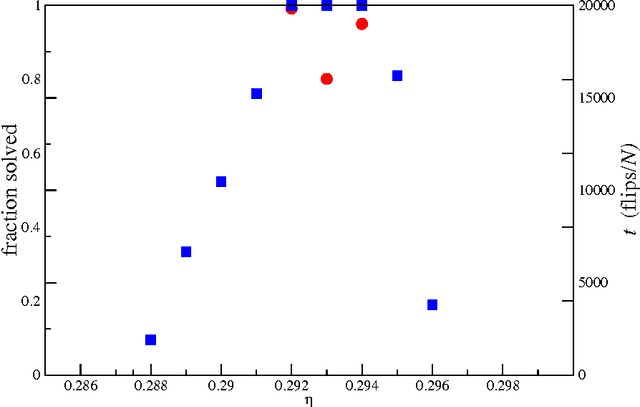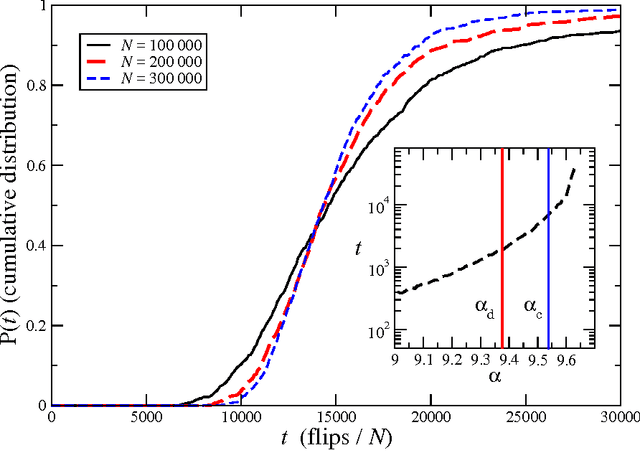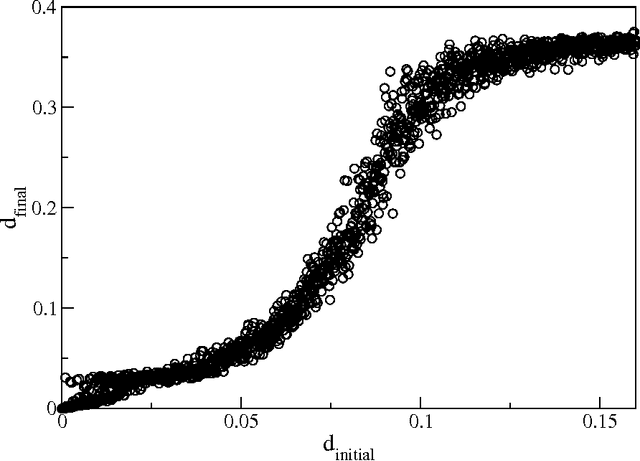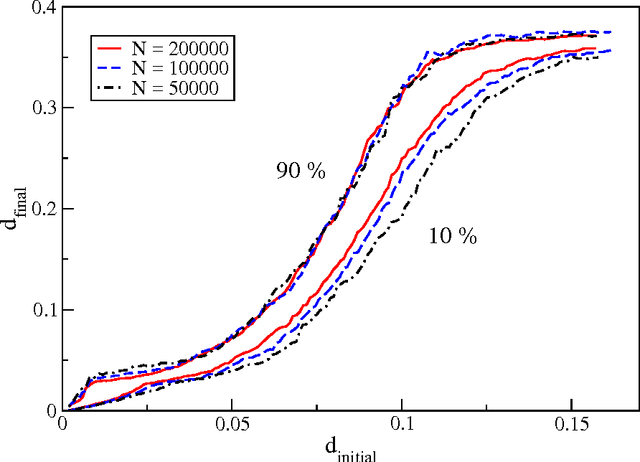Erik Aurell
A novel local search based on variable-focusing for random K-SAT
Dec 12, 2013


Abstract:We introduce a new local search algorithm for satisfiability problems. Usual approaches focus uniformly on unsatisfied clauses. The new method works by picking uniformly random variables in unsatisfied clauses. A Variable-based Focused Metropolis Search (V-FMS) is then applied to random 3-SAT. We show that it is quite comparable in performance to the clause-based FMS. Consequences for algorithmic design are discussed.
Gaussian Belief with dynamic data and in dynamic network
May 03, 2009



Abstract:In this paper we analyse Belief Propagation over a Gaussian model in a dynamic environment. Recently, this has been proposed as a method to average local measurement values by a distributed protocol ("Consensus Propagation", Moallemi & Van Roy, 2006), where the average is available for read-out at every single node. In the case that the underlying network is constant but the values to be averaged fluctuate ("dynamic data"), convergence and accuracy are determined by the spectral properties of an associated Ruelle-Perron-Frobenius operator. For Gaussian models on Erdos-Renyi graphs, numerical computation points to a spectral gap remaining in the large-size limit, implying exceptionally good scalability. In a model where the underlying network also fluctuates ("dynamic network"), averaging is more effective than in the dynamic data case. Altogether, this implies very good performance of these methods in very large systems, and opens a new field of statistical physics of large (and dynamic) information systems.
* 5 pages, 7 figures
Circumspect descent prevails in solving random constraint satisfaction problems
Nov 30, 2007



Abstract:We study the performance of stochastic local search algorithms for random instances of the $K$-satisfiability ($K$-SAT) problem. We introduce a new stochastic local search algorithm, ChainSAT, which moves in the energy landscape of a problem instance by {\em never going upwards} in energy. ChainSAT is a \emph{focused} algorithm in the sense that it considers only variables occurring in unsatisfied clauses. We show by extensive numerical investigations that ChainSAT and other focused algorithms solve large $K$-SAT instances almost surely in linear time, up to high clause-to-variable ratios $\alpha$; for example, for K=4 we observe linear-time performance well beyond the recently postulated clustering and condensation transitions in the solution space. The performance of ChainSAT is a surprise given that by design the algorithm gets trapped into the first local energy minimum it encounters, yet no such minima are encountered. We also study the geometry of the solution space as accessed by stochastic local search algorithms.
 Add to Chrome
Add to Chrome Add to Firefox
Add to Firefox Add to Edge
Add to Edge